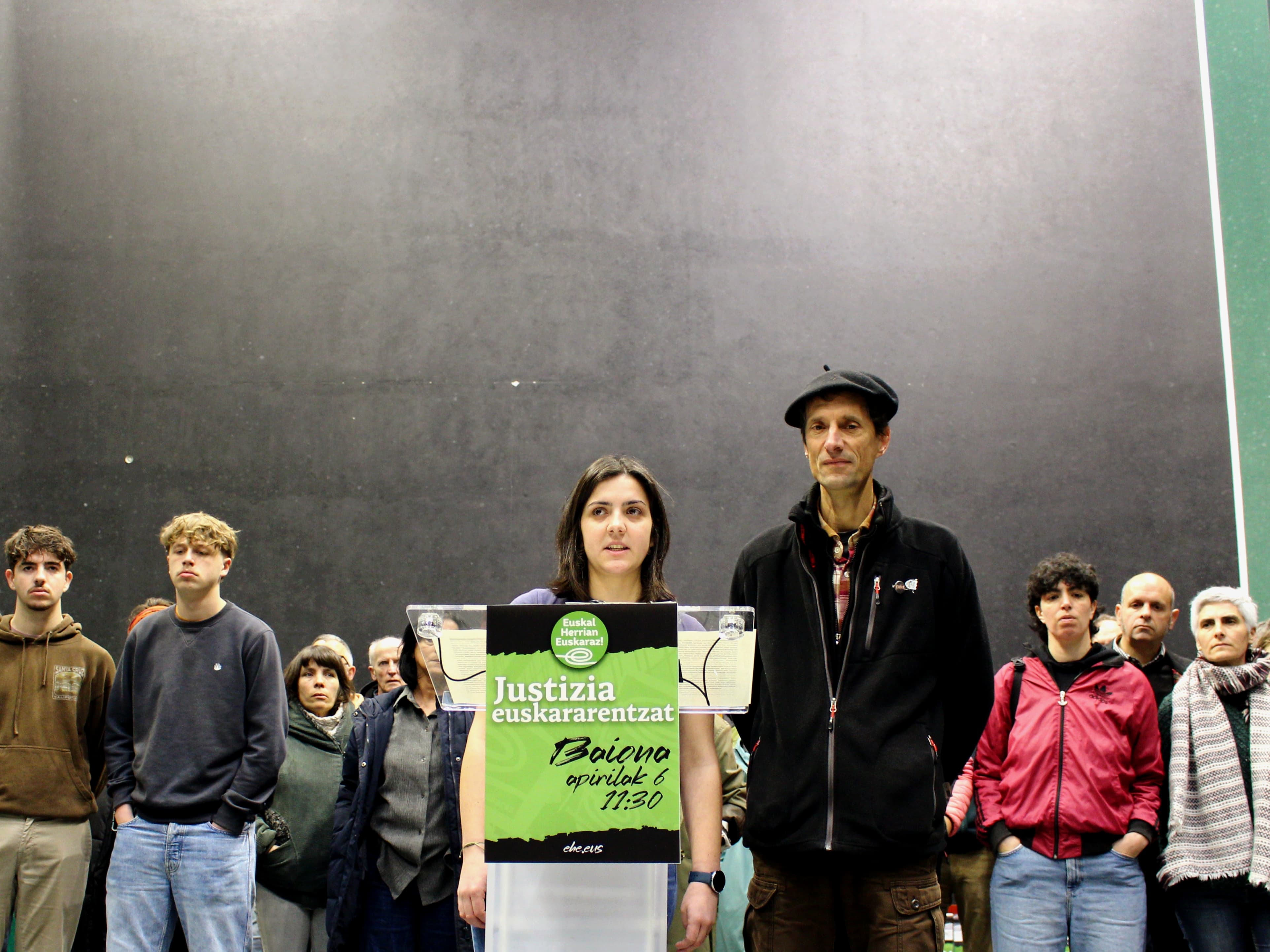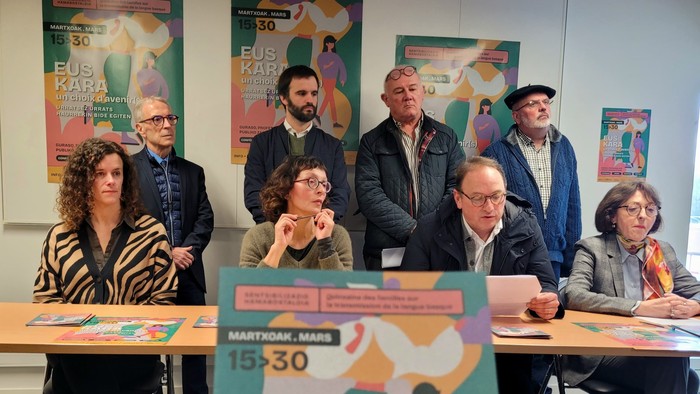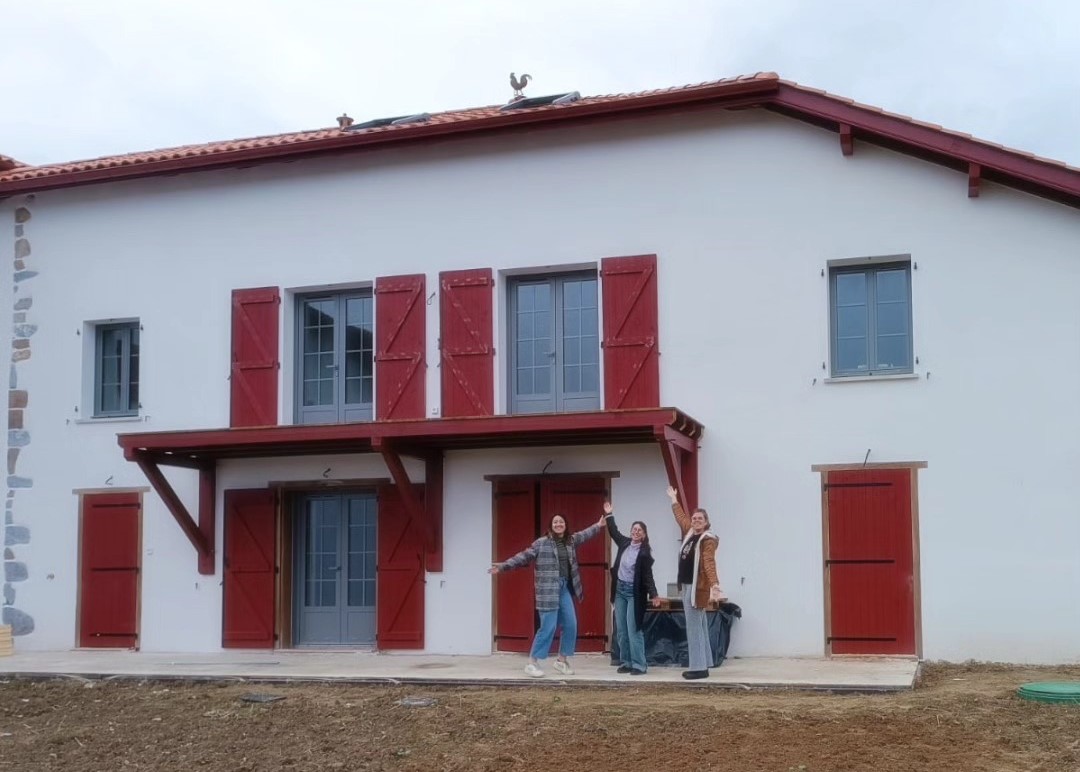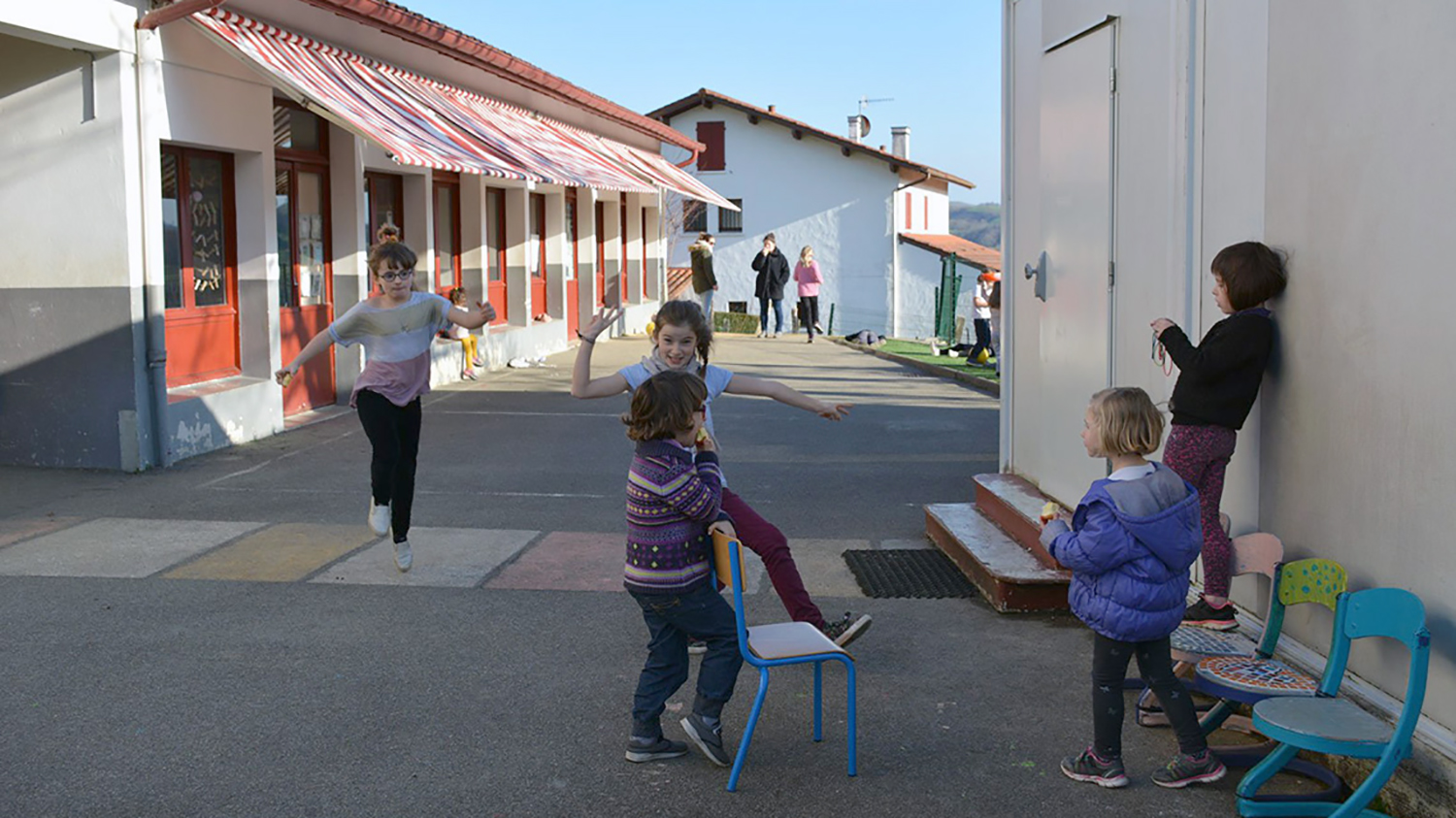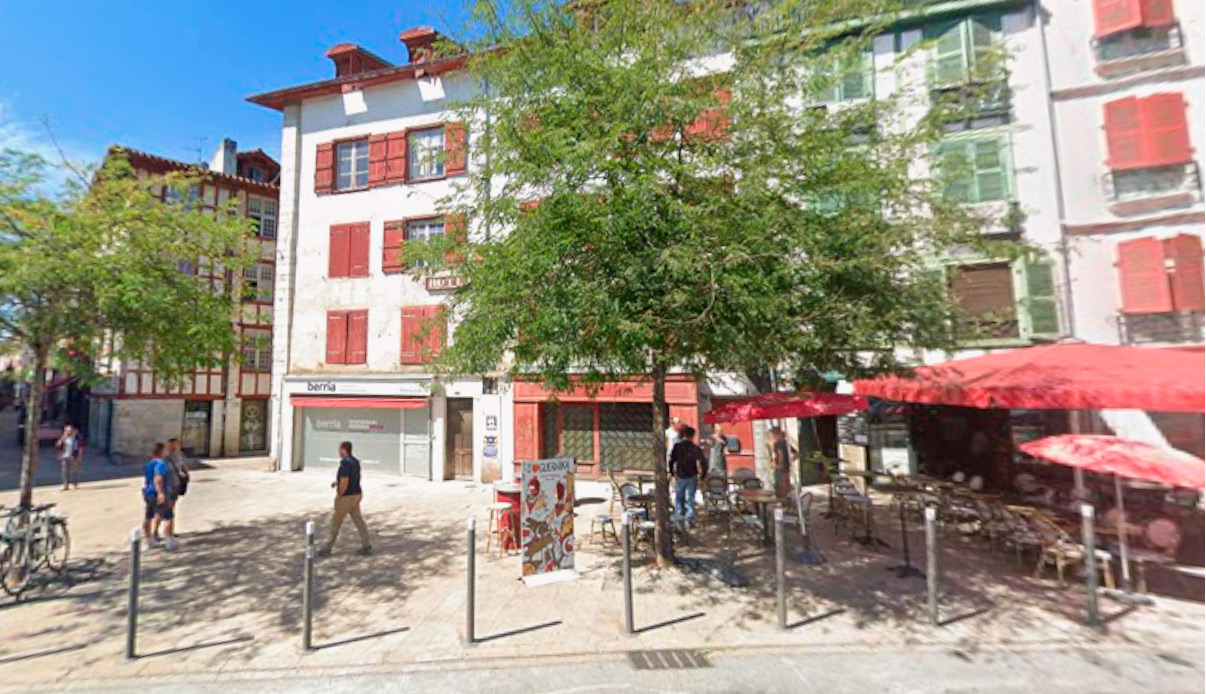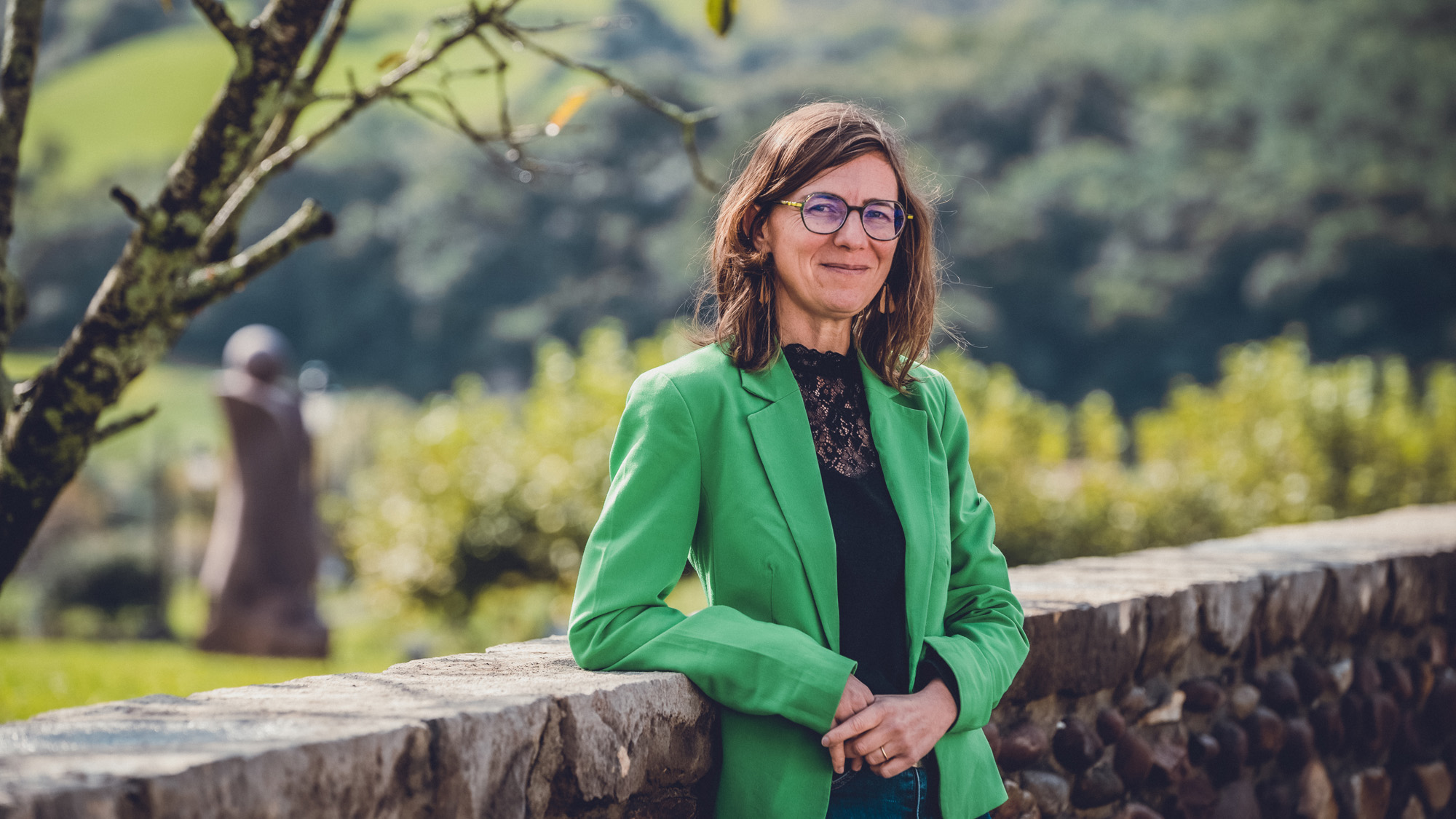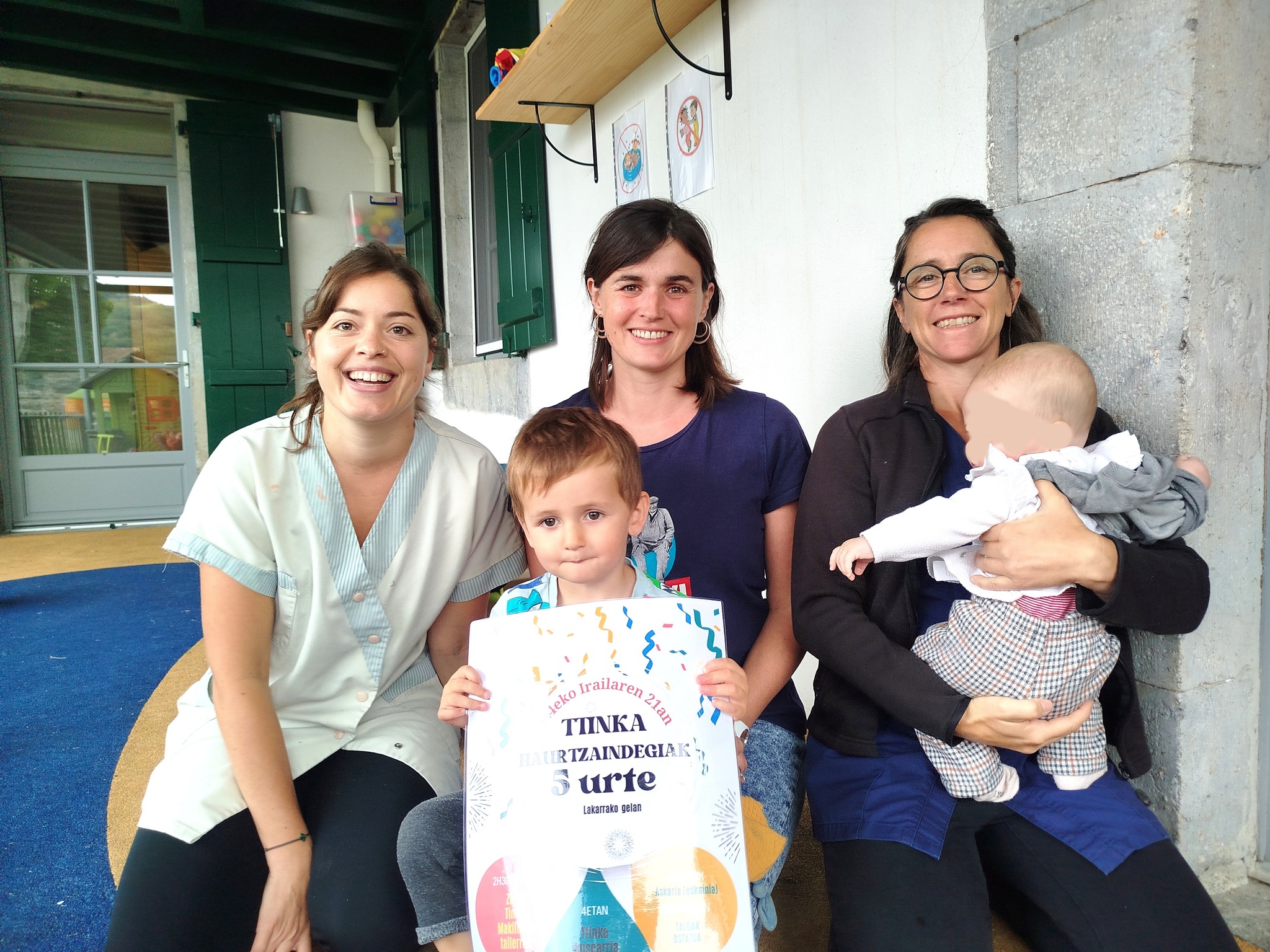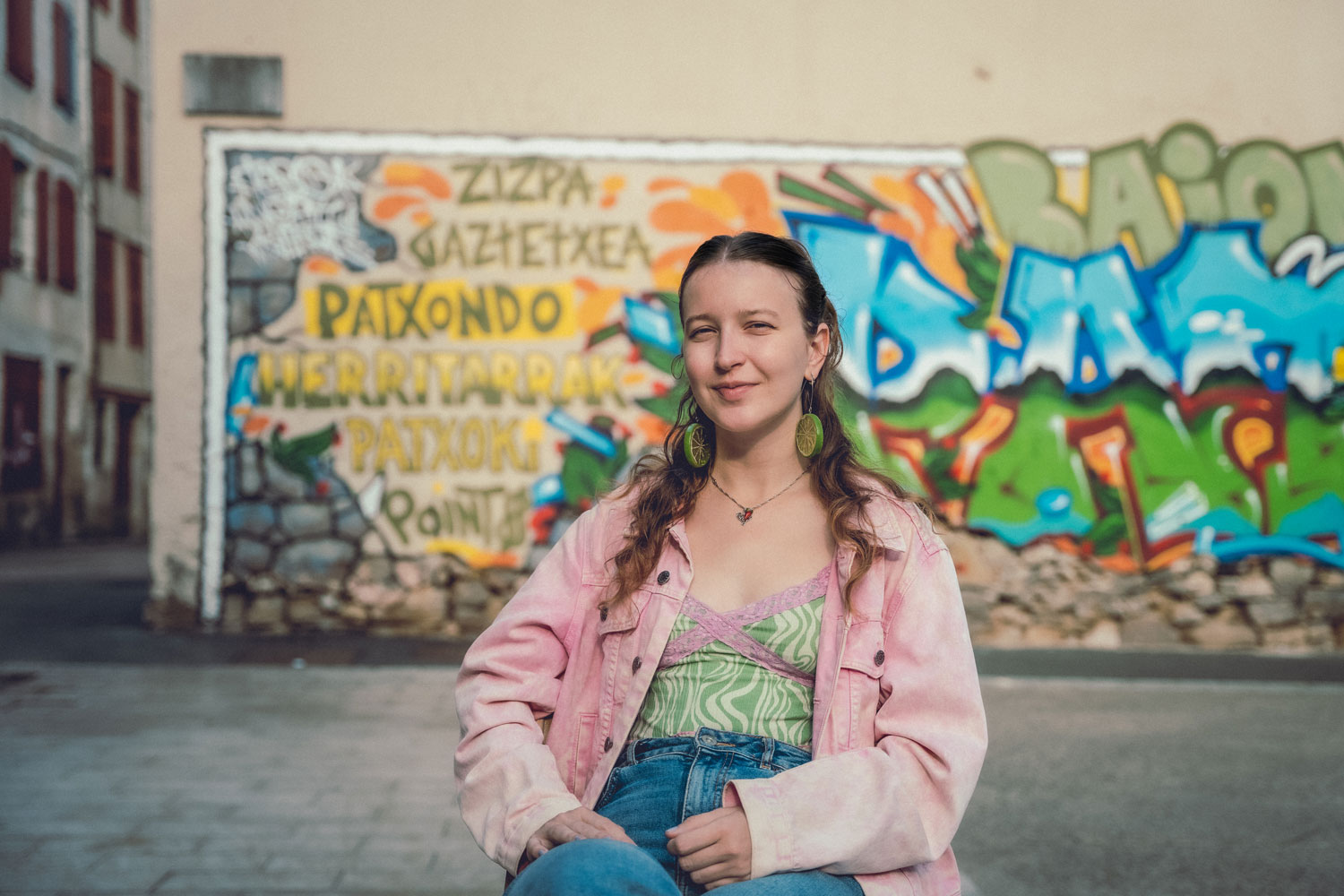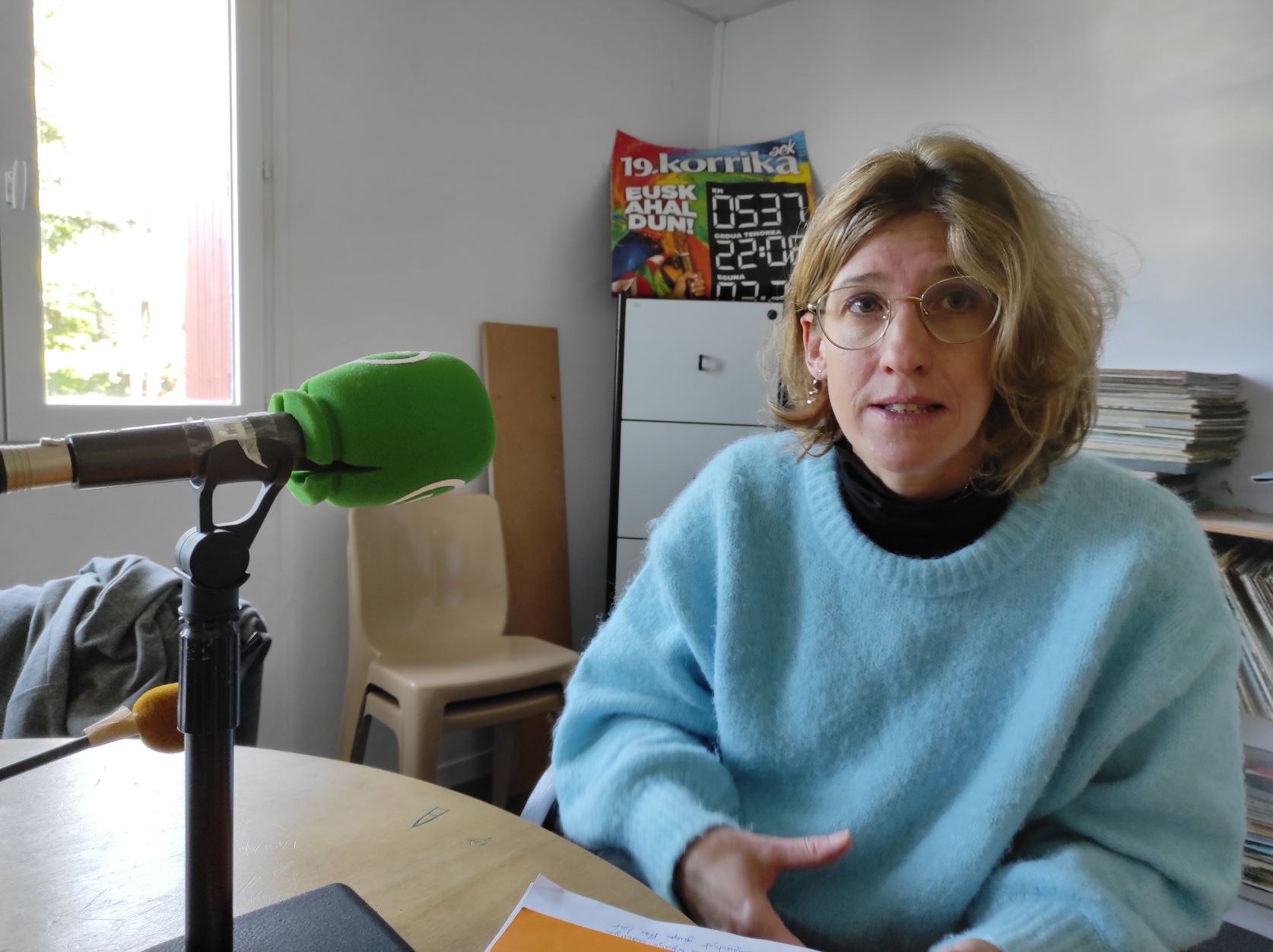"The greatest challenge we will face in the future is the use of the Basque Country"
- Mikel Esclamadon is the new AEK coordinator in Ipar Euskal Herria. The witness of Jakes Bortai, who has fulfilled his responsibility for the past thirty-two years os.El objective and obligations are no less, but motivation and curiosity are equal, they feel satisfied. In addition to talking about the situation of night schools, he has spoken to us about the world of Euskera and about the steps to be taken towards the normalisation of Euskera.

You're the new AEK coordinator at Ipar Euskal Herria.
I officially took office in February, following a five- or six-month broadcast phase with the last coordinator, Jakes [Bortairu]. It had varied and extensive information for transmission, also knowing that AEK is not a small organization. He went to the toilet on September 1 and since then I've been in the only coordinator.
How is it going?
OK. I started with the Korrika organization, it was rich and interesting. After going to Jakes, I had a doubt phase, so that the referent would leave and be alone. And in the middle of the campaign! In the end, the transmission has been done well and I can say that the entry has passed well. I am getting better and better at the job, dominating the issues more and more. I'm discovering from within a world I knew from the outside, with great joy and interest.
What motivated that position?
At that time I was unemployed but before I had such a job, in the Hegalaldia association. Although it was in the field of animal conservation, it had a responsibility to coordinate projects and people's management. That's what I loved, and when I learned that AEK needed a coordinator, I approached Jakes to speak, to get more details. Personally, I love to take challenges in life, discover new things, that job offered me. Being around the Basque country, working in the Basque country was also of great importance.
What does the map of the night schools in Ipar Euskal Herria look like? .jpg)
We have a fortnight school distributed throughout the three provinces, this year with 1,100 pupils, that is, we are still on average in recent years. We have a team of about 50 workers, including all volunteers and employees throughout the year between 80 and 90 people. In addition to the night classes, we also have Xede and 6H training, belonging to the professional section. These are staff from the Jomen public entities located in the L6 in search of employment or change of department.
The latter two are also important.
It is very important in the Euskaldunization of Ipar Euskal Herria and in the incorporation of vasco-speakers in the professional sphere. The goal is not only to teach Euskera, we also want to work and accelerate the use of Euskera. Fifteen years ago we created it and this year it brings together 180 students, while in 6H it is about 35. One of the main challenges of AEK is that of gratuity. These departments contribute to this by channelling the subsidies that exist in the professional area.
You mentioned its use. How do you see the linguistic context of Ipar Euskal Herria?
The biggest challenge we're going to have in the future is use. We know how to create Euskaldunes speakers, but the challenge is in that jump from being students to being active Euskaldunes, which I believe we have not overcome. AEK has a role, but the whole of society and, above all, institutions and politicians have an important role. The Basque country must be given the place it owes in the administration and in the street, until it reaches a state of normalization.
What are the essential elements to reach the time of use?
I will not speak in place of the institution, but the knowledge of the Basque is essential, if it is not official, at least we need a situation of co-ordinality, in which the Basque country has its place, in the administrations, in the schools, in the signs of the roads, in the street.
Without knowledge, the Basque Country is still alive in Iparralde.
Thanks to our society, that is, what we call the popular movement, all the jobs and struggles of the last years and decades. This has brought us to the present situation. Despite the fact that institutions have to take the lead, society must continue to encourage and strengthen this work. The Basque country will need the whole of society.
We are increasingly moving towards cooperation between institutions and citizens. What will ensure fruitful cooperation?
Let us suppose that Euskaraldia achieved great success and I believe that we must continue along that path. At the moment we have between ten and fifteen days, but we should have it for 365 days. That is our objective and that is what we are working on in creating new policies with public institutions. We have a vision of the ground, a political force to carry out, vote and carry out the ideas that have come from the ground. If we could not approach a table thirty years ago, today it is possible and that is a good thing. We have to see the future with optimism ... Because we have something to do!
Are you optimistic beyond necessity?
Yes. My philosophy is also to look forward thinking that challenges will be met. You have to be optimistic. Of course, it's also realistic, because we know that not everything is pink and nice.
I liked “Finishing the studies on environment and biodiversity, traveling and then I was presented with the opportunity to work in Hegalaldia [association that defends wildlife]. So I met the world of partnerships, and I'm at ease with it. It has its beauty with all the challenges it has, even if it's hard. Personally, we know that we don't work for a boss, but for an objective or a sense. It gives a meaning to life... At least it contributes to this.”
25 bat eragilek adierazi diete elkartasuna apirilaren 11n Baionako auzitegian epaituko dituzten Intza Gurrutxaga eta Gorka Torre Euskal Herrian Euskaraz taldeko kideei. Egun batzuk lehenago, apirilaren 6an Baionan eginen den manifestazioan parte hartzeko deia ere luzatu dute.
Plazara, AEK, Uda Leku, Dindaia eta Ebete antolakundeak Baionan elkartu dira Famili'on egonaldi ibiltariaren lehen edizioa aurkezteko. Hizkuntza mailaren arabera eskaintza bat edo beste egongo da eta haur zein gurasoentzat izango da udaberrian.
Hizkuntzarako ere gurasoak haurrentzako eredu direla kontuan hartuta, euskararen erabilera eta irakaskuntzari buruz sentsibilizatzeko helburua duen hamabostaldia antolatu dute Hendaia, Urruña, Donibane Lohizune eta Ziburuko herriek. Martxoaren 15etik 30era guraso... [+]
Nafarroa Beherean, Aiherrako 'Beltzegitea' etxean kokatuko da Eguzkilore haurtzain-etxe berria. Euskara, natura eta motrizitate librea oinarri harturik, heldu den apirilean hasiko dira zerbitzua eskaintzen.
The problem of the afrancession of the names of the places of Euskal Herria is not only due to the lack of consideration of the language in the signaling panels, but also to the execution of a decision on the domiciliation that was taken a few years ago.
Ultimately, the... [+]
Larunbatean ospatu dituzte Ttinka mikro haurtzaindegiaren bost urteak Lakarran. Baxe Nafarroko euskara hutsezko egitura bakarra da, Euskararen Erakunde Publikoaren B ziurtagiriduna.
On May 17, five Euskaltzales of Ipar and Hego Euskal Herria performed an action coinciding with the call made by the students of the Bernat Etxepare lyceum to mobilize in favor of the Basque. On the wall of the Baiona Subprefecture, a message was sent to the authorities of the... [+]
“Geldi euskara zapaltzea” lema berriz hartu du Euskal Herrian Euskaraz taldeak larunbatean egin duen prentsaurrekoan. Maiatzaren 17an, esaldi hori Baionako suprefeturan tindatzeaz akusaturik, irailaren 10ean epaituko dute Gorka Roca Torre.
Ikasturte honetan, lehen mailako ehun eskola elebidunetan 5.700 ikaslek ikasiko dute. Bigarren mailan hamasei kolegio eta lau lizeotan 1.600 dira. Zailtasun nagusia aurten ere kolegioan euskararen eta frantsesaren arteko oren parekotasuna erdiestea da.











